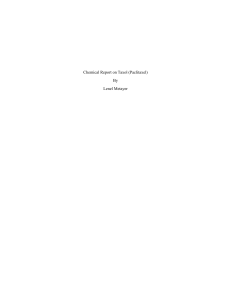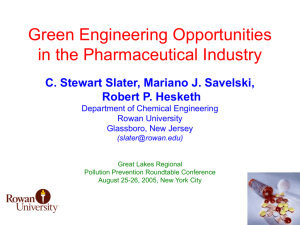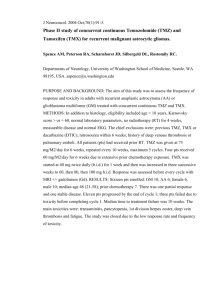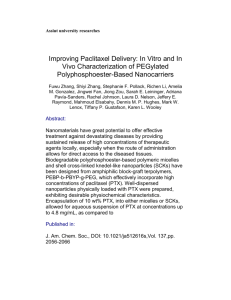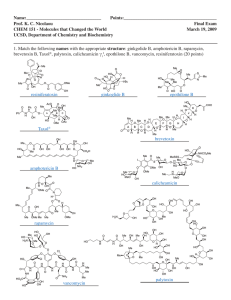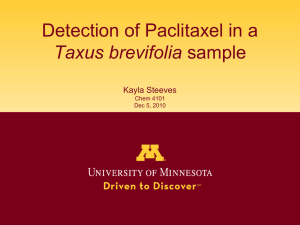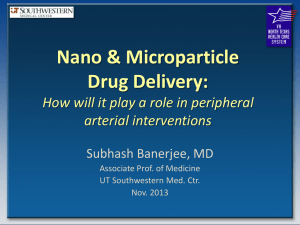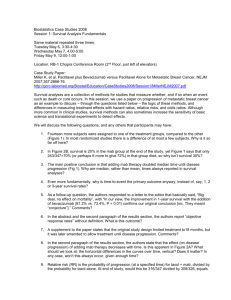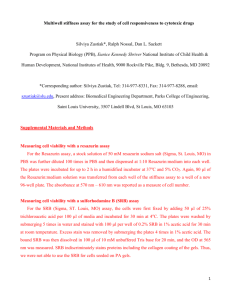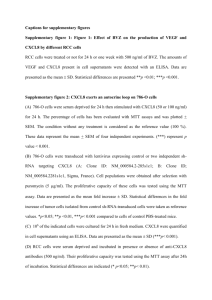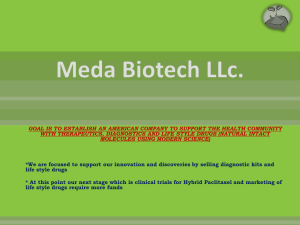BIODIVERSITY CONSERVATION AND DRUG DISCOVERY IN
advertisement
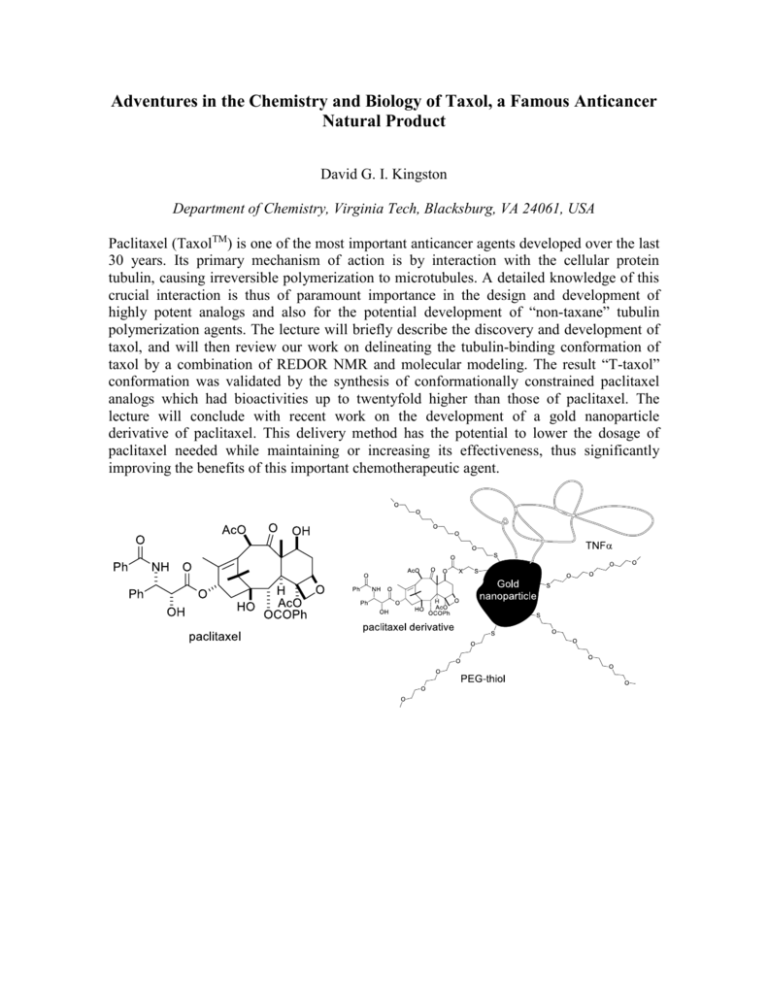
Adventures in the Chemistry and Biology of Taxol, a Famous Anticancer Natural Product David G. I. Kingston Department of Chemistry, Virginia Tech, Blacksburg, VA 24061, USA Paclitaxel (TaxolTM) is one of the most important anticancer agents developed over the last 30 years. Its primary mechanism of action is by interaction with the cellular protein tubulin, causing irreversible polymerization to microtubules. A detailed knowledge of this crucial interaction is thus of paramount importance in the design and development of highly potent analogs and also for the potential development of “non-taxane” tubulin polymerization agents. The lecture will briefly describe the discovery and development of taxol, and will then review our work on delineating the tubulin-binding conformation of taxol by a combination of REDOR NMR and molecular modeling. The result “T-taxol” conformation was validated by the synthesis of conformationally constrained paclitaxel analogs which had bioactivities up to twentyfold higher than those of paclitaxel. The lecture will conclude with recent work on the development of a gold nanoparticle derivative of paclitaxel. This delivery method has the potential to lower the dosage of paclitaxel needed while maintaining or increasing its effectiveness, thus significantly improving the benefits of this important chemotherapeutic agent.
